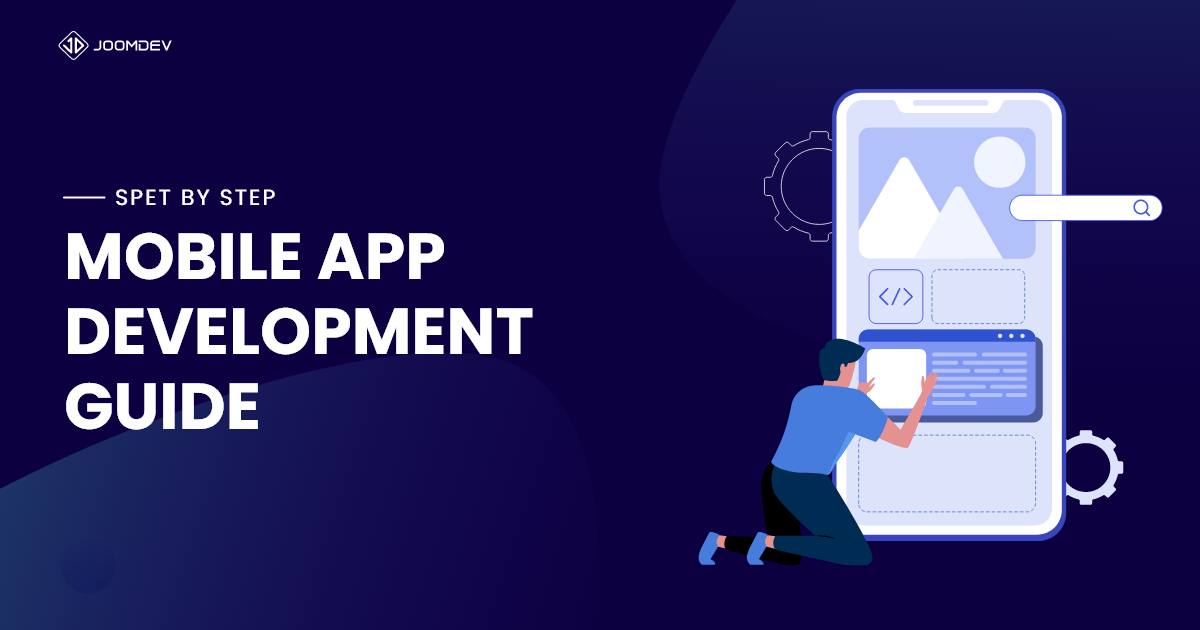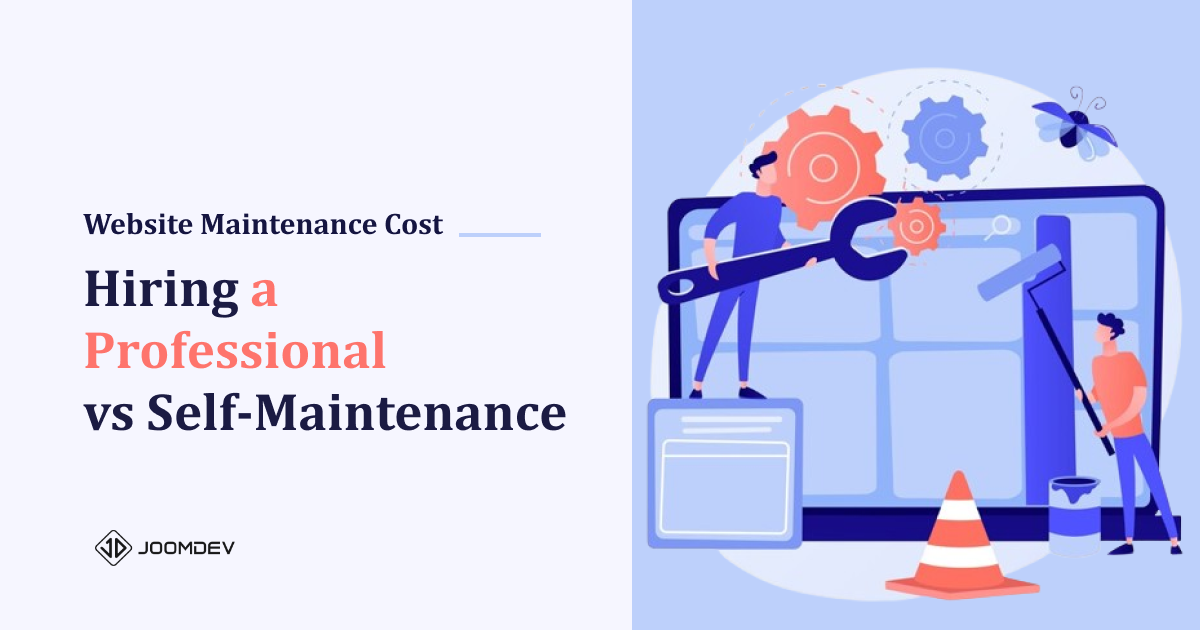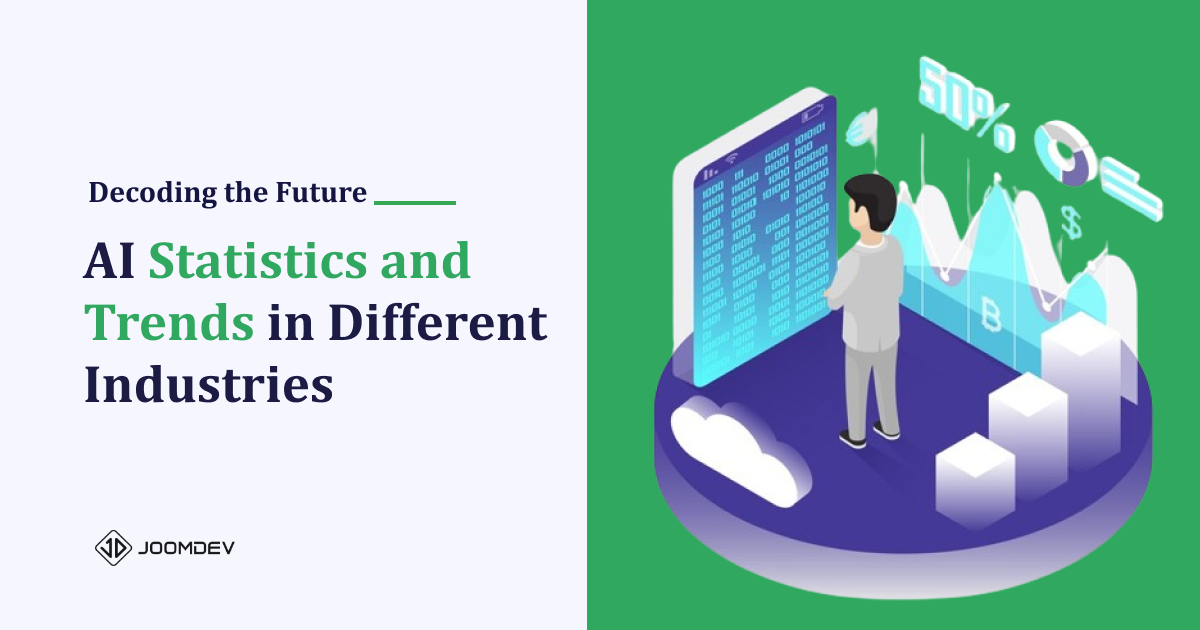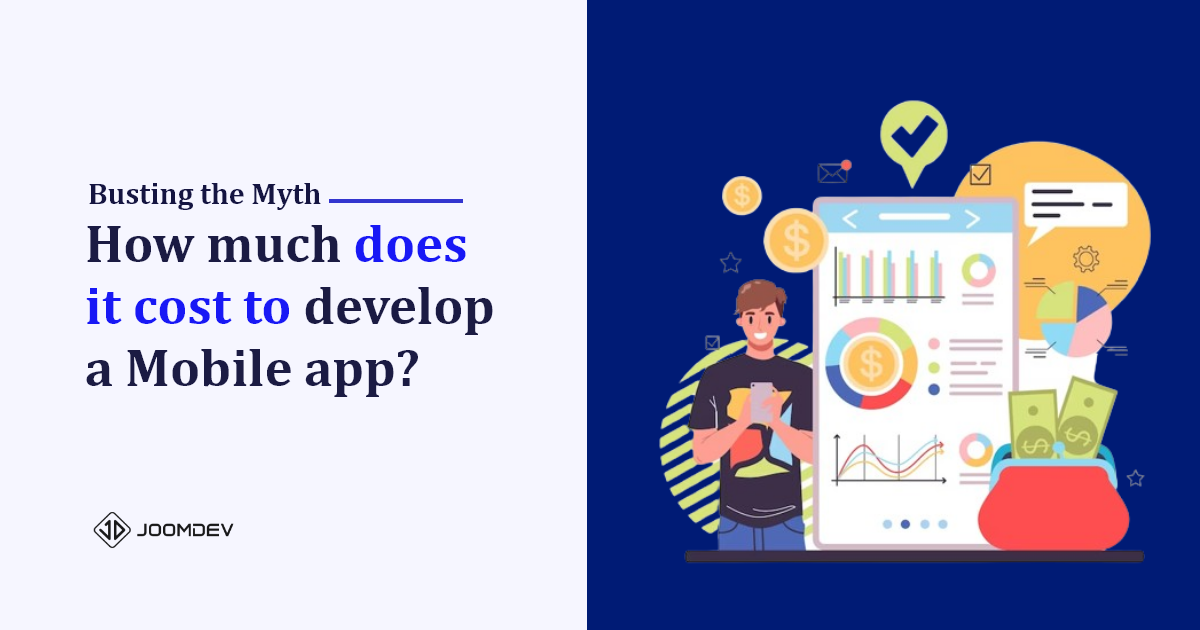This is it – you’re finally making a move to create an app for your business by looking for an ultimate mobile app development guide, and you couldn’t be more excited! If you Do want your app to excel and achieve success then moving forward with careful planning is more important now than ever.
The mobile app development industry has been witnessing a significant rise in today’s digital world. The thrill of owning your own app, adding features as per your requirement, and designing it sounds very attractive. Needless to say, developing an app requires a lot of painstaking work to turn the dream into reality.
It’s up to you how you implement the lessons of this guide in your app, working with some of the best app developers in the game. Your only mission: develop an app in a way that makes it stand out from the crowd and get noticed by potential users.
But do you know what goes into developing an app, start to finish? If not, don’t worry – together we’ll discover the anatomy of mobile app development and talk about all the information you need to create an excellent app that will make a lasting impression on users and get people downloading.
We have lots of interesting information to cover, so grab a snack!
Alright, let’s get to it!
Mobile App Development Guide
- Importance of Mobile App Development
- Things you need to know before app development
- Before You Develop Your New App : Preparation Steps
- Stages of Mobile App Development Lifecycle
- Best Practices to Maintain Your Mobile App
- In-house Vs. Agency : Which Option is Better for You?
- Some Pro Tips in Choosing a Mobile App Development Company
- Wrapping Up
Importance of Mobile App Development
It’s no secret that the number of mobile users is greater than the number of desktop users. Consequently, businesses have realized the need to follow the mobile strategy and give their brand a competitive edge.
Today, we are in the thick of the digital era of mobile apps. For any business – whether it be a large enterprise or small business, mobile apps have become an essential component in the success of every business.
Mobile apps have not only represented the brands to attract customers but also changed the way we do business. A well-developed app has a magic formula to expand the business reach and thus, compels to boost the Return On Investment (ROI) of the brand.
Let us take into the major benefits of developing a mobile app for your business:
- Create brand recognition by drawing your users attention.
- Boost customer engagement by being always visible to your customers.
- Improves brand loyalty by providing value to your customers.
- Enhances customer experience by allowing quick and instant access to information about your business.
- Provides an opportunity to leverage a direct & personalized marketing channel.
Things you need to know before app development
There is nothing as rewarding as developing your dream mobile application from scratch. It can be a truly unique and exciting experience with days of joy. While it can also be a really challenging process if you don’t know the basics and some important information that can prove beneficial in your app development journey.
That’s why we’ve decided to compile a list of some of the things you need to know before developing an application for your business. From types of mobile apps to the latest app development trends, we’ve got you covered.
Here are the 4 things that you’ll wish you knew sooner:
- What Are the Different Types of Mobile Apps?
- Why Mobile Apps Fail : Are You Learning From Mistakes?
- Great Mobile App Development Secrets You Didn’t Know (Shh, tell no one)
- Hottest App Development Trends to Keep in Mind for 2022
What Are the Different Types of Mobile Apps?
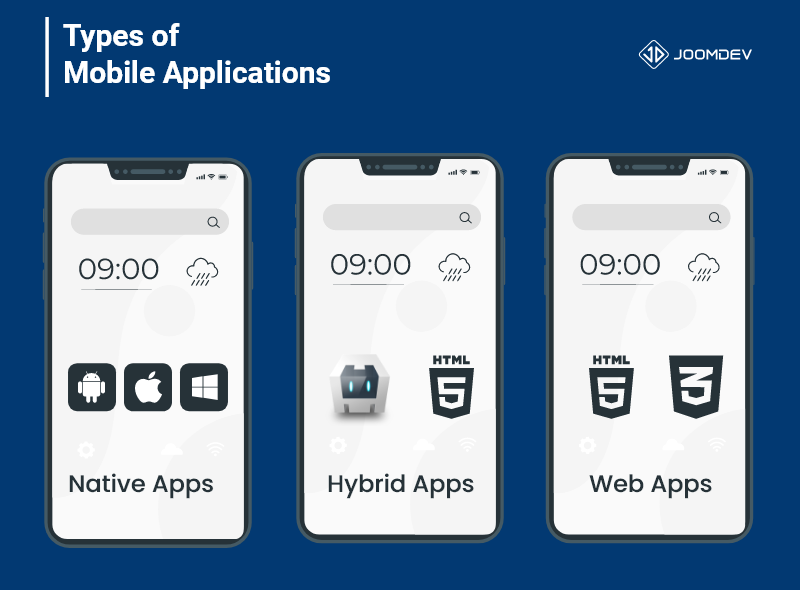
When you’re looking to develop your new app, your mobile app development company might ask you what kind of app you want. Maybe you already have your dream app in mind: a native, hybrid, or web app. Maybe you don’t know what these types of mobile apps are and want to understand these types by learning the benefits associated with them. So, we’ll go through the three basic types of mobile apps.
Native Mobile Apps
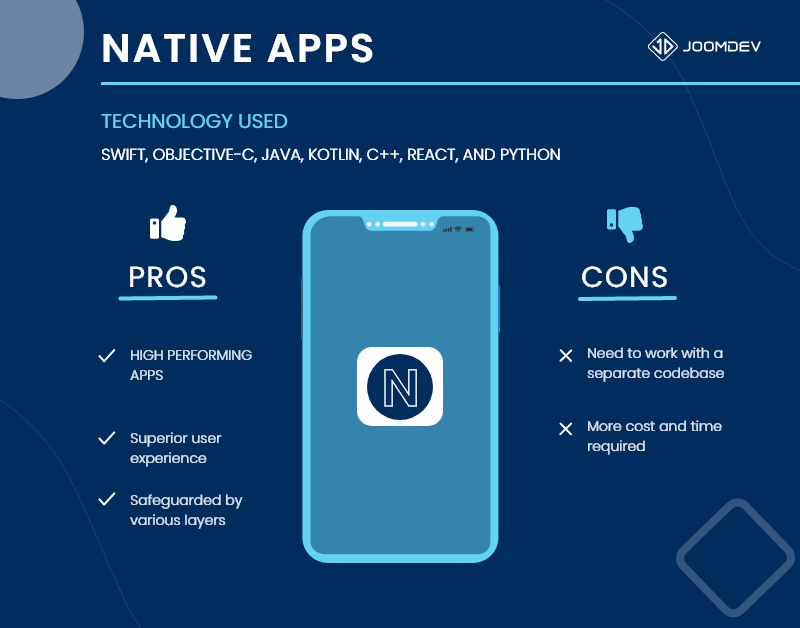
Native mobile apps are created and optimized to work on specific device platforms like iOS, Android, or Windows. These apps can be installed by users through a dedicated app store such as Google Play Store or Apple’s App Store. If you’re confused about choosing between the iOS and Android platforms for your Native App then the article Android vs iOS will help you to make the choice.
Programming Languages: Native apps are developed using programming languages like Swift, Objective-C, Java, Kotlin, C++, React, and Python.
Popular Apps:
- Spotify
- Waze
Pros:
- High performing apps that offer fast and responsive experience to users.
- Allows easy access to all the complete device features like GPS, camera, compass, microphone, accelerometer, etc.
- Native apps provide superior user experience as they maintain UI design of each operating system.
- Safeguarded by various layers of OS to guarantee reliable data protection to users.
- Provides superior user experience.
- Lesser chances for bugs to occur.
Cons:
- The cost and time required to develop and maintain the app is relatively more.
- Need to work with a separate codebase for each platform.
Web Apps aka Progressive Web Apps
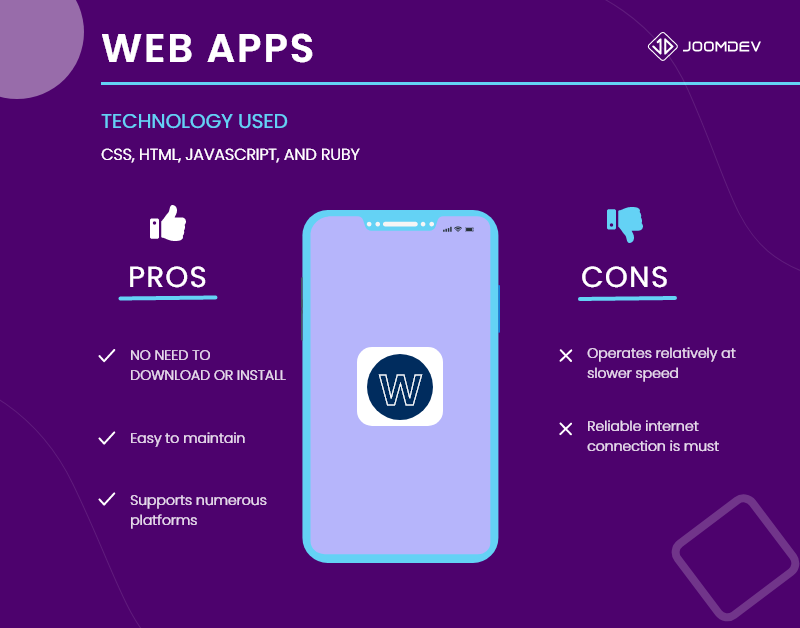
Mobile web apps are internet-enabled apps that require only a web browser to be installed on the device. These applications are websites that look and feel like native apps but are not downloaded or installed on a device.
To know more about web apps and how they are different from mobile apps, you can have a look at our detailed article Mobile apps vs Web apps.
Programming Languages: The programming languages used for mobile web apps include CSS, HTML, JavaScript, and Ruby.
Popular Apps:
- Slack
- Google Docs
- MakeMyTrip
Pros:
- No need to download or install as compared to native or hybrid apps.
- Easy to maintain as a single codebase can run on different platforms.
- Updates/patches are applied remotely to every device.
- Launching is extremely fast as the apps do not require approval of the app store.
- Supports numerous platforms and any operating system.
- Enables easy monetization of apps.
Cons:
- Operates relatively at slower speed due to it’s direct linking to our browser.
- A reliable internet connection is must at all times to run the app.
Hybrid Mobile Apps
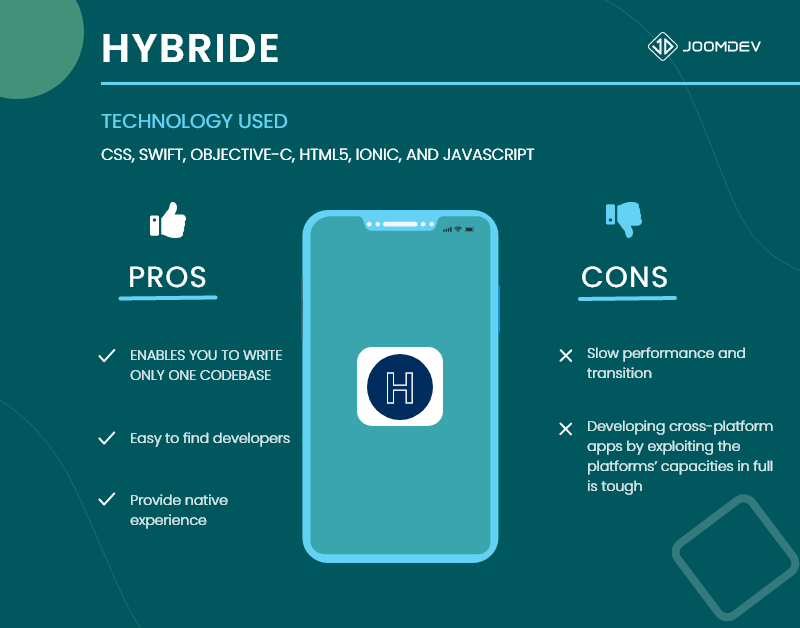
Hybrid apps are essentially web apps that have been put in the native app shell which makes them live in a native app store but being web apps on the inside. These apps are usually developed using CSS, HTML, and JavaScript and run in a WebView. Today, there is a gamut of mobile app development frameworks available such as React Native, Flutter, Ionic, and many others. Luckily for our readers, we have done the research and compiled the top 6 hybrid mobile app development frameworks in 2022 to help you make the best choice possible.
Programming Languages: Hybrid apps use programming languages such as CSS, Swift, Objective-C, HTML5, Ionic, and JavaScript.
Popular Apps:
- Gmail
- JustWatch
- Evernote
Pros:
- Enables you to write only one codebase and deploy it on other platforms.
- Reduced development time and costs as you have to manage only one codebase.
- Allows you to take advantage of few device features.
- Easy to find developers as it uses programming languages like CSS, HTML and JavaScript.
- Seamless integration with other apps.
- Provide native experience with a simple backend.
Cons:
- Slow performance and transition between pages as compared to native apps.
- Developing cross-platform apps by exploiting the platforms’ capacities in full is tough.
Why Mobile Apps Fail : Are You Learning From Mistakes?
According to a report, 68.07% of android apps failed to pass the 1000 downloads mark. This suggests that while global mobile app revenues continue to grow, a good chunk of mobile apps and endeavors still don’t pan outright. The challenge is to catch mistakes in the development of mobile apps that failed and learn from them. In this article, we’ll explore the 8 most common reasons for mobile apps failure.
Lack of Originality
Just duplicating the competitor’s app and hoping for the best is unlikely that your app will succeed, but it is likely that your app will oversaturate the app store. You need to provide a unique value proposition (UVP) through your app to survive in this hyper-competitive world of mobile apps.
Poor User Experience
The user interface and user experience of mobile apps have become a more important factor in deciding whether the audience will welcome the app or ignore it. So, you need to pay attention to the user experience of your app to make it interactive, acquainted able, and comfortable for the users.
Complex to Use
The truth is with the too many or too few features in your app, trust me you’re going to make your app complex which will, in turn, confuse and frustrate your users. Get into the shoes of your target audience to decide the right amount of necessary features to bring in a picture and you will see the audience leaning towards your app.
Monetization Strategy
Nothing worthwhile ever comes easy. The only way to get thousands of regular customers and avoid your app failing financially is by doing proper research, choosing the right monetization option, and creating a viable monetization strategy for your app. Also, before developing the app, consider developing and following an effective marketing strategy to make people notice and realize the presence of your app.
Not Selecting the Right Mobile App Development Platform (MADP)
You need to be thoroughly sure you choose the right MADP for your app or else you’re going to waste a lot of money. A good idea is to carefully choose between iOS and Android platforms based on the preference of your target audience, the purpose of your app, and careful deliberations.
Not Conducting Proper Testing
It’s like if you perform a fair amount of testing of your app ensuring there are no major issues and your app is market-ready, you’ll be avoiding bugs and crashing of your app. As the QA of an app is so complex that it’s very rare that apps will get launched without any bugs at all, you need to do thorough testing of your app.
Not Paying Enough Attention to Users Feedback
A lot of businesses are guilty of not paying enough attention to users’ feedback. There’re many companies that underestimate the importance of feedback in improving the future iterations of your app and this increases the chances of your app facing failure.
Inability to Solve Real-World Problem
This one, this very one right here stands out like a problem when businesses hurry to be in a race so that they ignore the importance of adding value to the life of people. You should focus on developing an original and unique app that not only solves a real-world problem but leaves an ever-lasting impression on users of your app. It’s that simple.
Great Mobile App Development Secrets You Didn’t Know
(Shhh, tell no one)
We all want our mobile app to be the best. Don’t we!
But the question is – how do you achieve that “Wow” factor? Despite all mobile app development advice floating around out there, there are some important secrets you may not even hear of.
Companies are always looking for mobile app development secrets! Everyone wants that magic that will help you cultivate your mobile app’s “Wow” factor. In our quest to find out exactly what makes a perfect mobile app, we caught up with our best developers and made them spill their best-kept mobile app development secrets. These are the 4 little secrets that mobile app developers know, but that the novice probably hasn’t heard.
Build a Minimum Viable Product (MVP)
An MVP is an iterative version of your app that consists of only the core features to satisfy early adopters and validate the app idea. Implementing Minimum Viable Product (MVP) will not only help you test out whether your mobile application is actually viable and marketable but also reduce the overall development time. In order to take advantage of these benefits, you should build a Minimum Viable App (MVP), and that doesn’t just fall out trees – you need to make some real effort. So, make sure to create a minimum viable app with proper strategy and effort.
Enable Offline Capabilities:
Allowing your users to access some of the features in your app even in offline mode might seem like a small thing and because of this, many overlook this opportunity of connecting with your users with or without an internet connection.
The greatest advantage that the developers like to play up is the fact that enabling offline capabilities in your mobile app will provide a positive user experience.
Adopt Agile Techniques for Frequent Releases:
Unless you can adopt agile techniques for mobile app development, you’re going to lag behind on some of the techniques that make sense. In order to do this well, you need to adopt tried and tested agile methodology like scrum for your mobile app development.
Plus, if you really want to develop a killer mobile app that makes your users go “WOW”, you’ll find that incorporating best practices like unit testing, continuous integration, and frequent releases get much better results.
Test Your App After Deployment:
It’s a common misconception that there is no need to test your app after deployment. While it’s important to perform thorough tests before launching a mobile app, it’s also necessary for your app after deployment.
And, yes, it will help you solve issues that you didn’t notice before like performance problems, poor user interface, or crashing to ensure that the app released to the market is of superb quality. The problem is that, even though you performed end-to-end testing before launching the app, there are always some odds.
Hottest App Development Trends to Keep in Mind for 2022
The state of the mobile app development industry continuously changes and evolves right before our eyes – revealing new current trends we never saw coming. Staying updated on the latest mobile app development trends can help fuel your app development process and make you stand out in the crowd. Here are 8 of the most important app development trends that you need to be aware of in 2022 because they will help you not just survive, but thrive in this age of never-ending mobile app development changes.
5G:
While 4G is a firm favorite, 5G is moving up in the ranks. In 2022, 47.5% of all devices will be 5G-enabled, and we predict it’s just getting started. The 5G technology has seen undeniably fast growth. In fact, tech companies have started to embrace this high-end technology for taking the user experience up by several notches.
This magical trend on the horizon will encourage mobile app developers to expand the possible functionality of apps for making them more responsive and blazing-fast. It will also pave the way for more mobile apps using progressive technologies such as IoT, cloud computing, machine learning, artificial intelligence, augmented and virtual reality, etc.
Internet of Things (IoT):
Internet of Things (IoT) is an ecosystem of intelligent objects – “things” – that are connected to the internet for collecting and sharing data. Brands leveraging IoT is not a new trend but is a trend that is still going strong and will continue to do so. According to the statistics, the number of cellular IoT connections is expected to reach 3.5 billion in 2023.
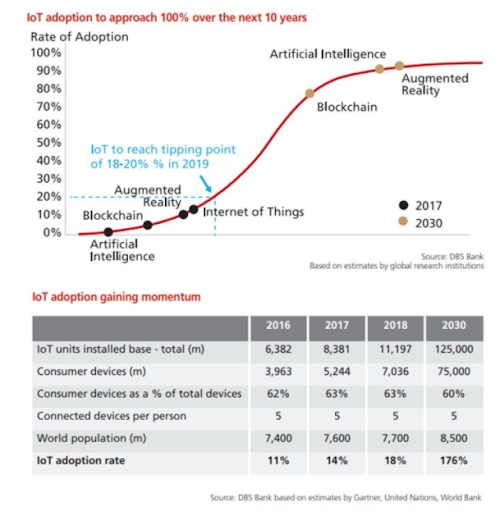
In 2022, we’ll continue to see the rise of IoT as more brands explore how they can integrate IoT into their apps to stay ahead of their competition no matter what. Additionally, we’ll watch IoT’s ripple effect on the mobile app development industry at large, as demand for IoT gadgets and systems will rise and many businesses will quickly shift their gear into the development of IoT-enabled apps. For example, a mobile app can act as a remote or gateway to control the IoT-connected thermostat which can be used in the office or home.
Artificial Intelligence (AI) and Machine Learning (ML):
What are the first names that come to your mind when you think of Artificial Intelligence? Do you think of a Face App or Prisma which recently took the internet by storm? Or do you think about the frontrunners in the virtual personal assistant space: Siri, Bixby, Alexa, and Cortana?
But have you ever thought that these undeniably powerful technologies come with the potential to revolutionize the development of mobile apps? Many enterprises across different verticals are now utilizing Artificial Intelligence in the development of AI-powered mobile apps to offer automation, voice translation, facial detection, personalized user experience, interactions, and much more.
Machine learning has proven effective in benefiting the mobile development landscape, as well. This is why you’ll see more companies take advantage of Machine Learning in developing innovative apps that understand the user’s behavior completely through regular usage patterns of users and implement necessary actions without instructions. However, it will be important in 2022 to consider AI and ML as an important part of your mobile app development process.
Augmented Reality (AR) and Virtual Reality (VR):
As pandemics forced the world to go virtual, now you’ll begin to see the integration of AR and VR into mobile app development to bring game-changing experiences to users on mobile. As we head into 2022, then, it makes sense that businesses are contemplating how they can interact with virtual or augmented environments to provide an interactive and immersive user experience.
Have you played an augmented reality game called Pokemon Go? It may be the biggest success story for AR that has taken the world by storm and resulted in AR brand collaborations like T-Mobile and Starbucks.

AR and VR can not only be applied in games and video arenas but also have the potential to greatly contribute to the success of mobile apps for training, education, retail, marketing, healthcare, tourism, interior designing, etc.
According to the global forecast report, the demand for VR in mobile apps will reach up to $44.7 billion by 2024. AR and VR is ready to reshape the mobile app domain by immensely benefiting apps from the ability to overlay artificial objects on real-world objects or offer entirely artificial environments.
Apps for Wearable and Foldable Devices
It’s no surprise that wearable and foldable devices are becoming increasingly popular and the future is full of them. Wearable devices are beginning to gain traction. In 2022, it is expected that the number of connected wearable devices will attain 929 million-mark. In this Wearable Era, we can expect wearable technology to become as big as the smartphone. So, you should consider developing wearable applications to grab a slice of a wearables pie.
According to statistics, global foldable smartphone shipments will hit 100 million units by 2025. The trend of adopting mobile apps for foldable devices has been slowly gaining momentum. If development companies don’t want to be left behind in the coming decade, those who haven’t yet considered incorporating wearable and foldable devices in their mobile app development strategy so better start planning now!
Beacon Technology
Next remarkable mobile app development trend is beacon technology, which is a technology that detects the human presence in the surrounding and alerts apps to deliver a customized experience accordingly. Basically, beacons are radio transmitters that use Bluetooth Low Energy (BLE) technology to send signals to other smart devices nearby.
In recent years, many industries such as retail, travel, education, real estate, and healthcare have opted for beacon technology to offer better services to their users. When app users enter such beacons enabled zones, beacons act as a lighthouse by enabling the signal transmission to mobile apps and deliver personalized services at user fingertips.
BlockChain
Business owners or mobile app developers are increasingly turning to blockchain technology which will help them provide enhanced customer service and stay ahead of their competitors. The global market of blockchain technology is expected to hit $20 billion by 2024.
Blockchain technology presents innumerable possibilities in not only creating cryptocurrencies and smart contracts but also in the development of decentralized mobile apps or DApps. The increase in mobile transactions will in turn increase the popularity of blockchain app development.
On-demand Apps
On-demand apps promise to provide customized solutions that can meet people’s demands. According to a report, on-demand apps will hit approximately $335 billion by 2025. The on-demand apps continue to proliferate with businesses leveraging the benefits of the growing on-demand economy.
Soon, you’ll be seeing on-demand apps transform more sectors like beauty, logistics, transportation, healthcare, e-commerce, food and grocery delivery, etc. There are many companies that have already tasted success with on-demand apps.

Want to develop a mobile app for your startup that run on all the platforms?
Don’t worry, we are here to help you. Let’s book a free consultation call with our expert and let us understand your business and what you want to achieve.
We strategize, design, develop and help your business idea to turn into reality and make it successful.
Before You Develop Your New App : Preparation Steps
You didn’t really think we would just jump right into developing a mobile app, did you? The correct implementation of preparation steps is going to simplify your app development process. Make sure to implement these 6 preparation steps or “to dos” before you develop your new app.
Perform Market, Audience, and Competitor Analysis
The way you perform analysis will determine the strength of your mobile app development strategy. If you’re just getting started, consider doing thorough research and analyzing your market trends, target audience and competitors.
Even before you know the concept of your mobile app, long before you select a mobile app objective. If you cannot do detailed analysis, your entire app journey will become directionless and can end up in failure.
Let me put it this way: It will be like developing a meat delivery app for vegetarians.
No matter what you do, without planning, your mobile app development project is going to fail! As the popular saying goes, “If you fail to plan, you are planning to fail”. So, you must conduct intense research to know and serve your target audience.
Choose the Type of Mobile App and Platform
Now that you have done a proper analysis, let’s choose between native, hybrid, or a web app as per your business requirements. While creating a mobile app is beneficial for your business, you must understand what type of mobile app and platform is suitable for you to help your app survive and thrive.
Understand Your Monetization Options
After all, penning down a monetization strategy by understanding your monetization options is the key to making money from your app. While you prepare your strategy, consider analyzing the different forms of monetization like advertising, in-app purchases, subscriptions, sponsorships, and data monetization. Make sure to keep your user experience intact while your app generates growing revenue for you.
Create Your Marketing Plan
The same way you prepare for the other aspects of mobile app development, you need to have a specific and intentional marketing plan for your mobile app promotion. Kick start a stellar marketing plan to create buzz for making people look forward to it, set your foot right in the app store for maximum installations, and retain users over the long term for your long-term benefit.
Know Your Timeline and Resources
The development time frame of your app development project should be carefully thought-out for announcing your launch date ahead and creating the buzz. So, don’t delay anymore. Grab a paper and pen down your timeline, your budget, due dates for different stages and the resources you’re going to work with to avoid any emergencies and delays further down the line.
Take Security Measures
Taking security measures are going to be your savior. So, consider including a privacy policy if you run a mobile app that collects personal information from the app users. You could develop the most mind-blowing app in the store – but if you neglect planning and implementation of crucial security measures, you’re going to invite potential security risks.
Stages of Mobile App Development Lifecycle
Most people who develop mobile applications for a living will tell you that building mobile apps is not as easy as one-two-three. The constantly changing app development industry demands that app developers must keep their fingers on the pulse.
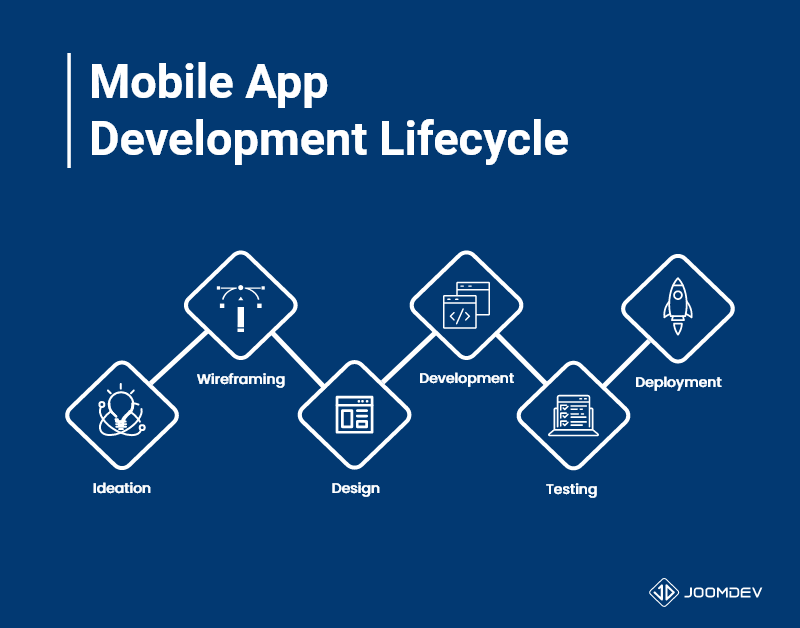
Mobile app development is not guided by any rigid rules, however development is not a random procedure either. A mobile app development lifecycle is very detailed and while detail can be awesome, it can feel overwhelming. That’s why having a mobile app development process is a necessity for developers.
There are a number of important factors that can aid a mobile app development process. It is very important to understand the stages of the mobile app development process and follow these stages to develop eye-catching and high-performance mobile apps. The process is demanding, but proper planning from idea to completion helps you to be more organized and run smoother.
As a mobile app development company, we’ll expound on each of these key phases to app development, which are the same for all projects. The process is divided into eight game-changer stages that can help you ensure success of your app project if executed properly. So buckle up and welcome to the dynamic world of mobile app development!
Stage 1 – Ideation
You’ve likely initiated this stage if you’re reading this. Ideation is a creative stage that kicks off the mobile app development process. To develop a new mobile app, you must first form an idea about what kind of app you want to develop.
This stage involves techniques like SCAMPER, brainstorming, and the Worst Possible Idea to challenge assumptions and generate ideas by thinking “out of the box”. Also, you need to have a solid background of knowledge to make sure that your mobile app idea will work.
Stage 2 – Wireframing & Prototyping
This stage is the foundation of your mobile app design and development stage. The idea is to map out the layout and produce a replica prototype for saving time across the entire project and ensuring a more efficient design and development stage.
To put it simply, a wireframe is a blueprint or digital sketch that illustrates the elements, functionality, and usability of an app. A prototype is a clickable, interactive, and dynamic model which closely resembles what your future app will look like.
Stage 3 – Design
Well, whenever you use a mobile app, the overall design of the app including its UI design and UX design is what impacts you the most. The beautiful, user-friendly, and professional app design generates good vibes as well as inquisitiveness to use the app.
Apart from enriching the user’s experience and enticing the users with its unique elements and intuitive functionality, the mobile app design plays an important role in other aspects of the popularity of the mobile app. So, you should pay complete attention to designing the app by using the latest and best design practices.
Stage 4 – Development
It’s finally time! After the above stages are complete, now it’s time to go for the stage you probably think of when it comes to mobile app development. This is the stage where your mobile app development imagination becomes reality.
The biggest part is establishing the appropriate technical architecture and coding the app by embracing the latest and best mobile app development practices. Developing a mobile app is difficult, but the effort will be well worth it.
Stage 5 – Testing
Before you go and put your application in the hands of its users, no matter how groundbreaking your mobile app seems, you need to ensure that you have done rigorous testing of the app to find the defects/bugs and resolve them.
Testing is very essential for your app to avoid countless crashes that may arise if you skimp out on thorough testing of the app for security, performance, user acceptance, usability, compatibility, and functionality. After you go through the testing you are ready for the stage you have been waiting for, deployment of your mobile app!
Stage 6 – Deployment
Oooh, this is the stage you love and for which you have done all the heavy lifting! To give yourself the best chance at thriving on the app store, your app must reach as many users as possible soon after you get it live. With that in mind, a lot of work needs to go into preparing the deployment of your mobile app. Here’s are some of the launching tips you should consider before putting your app into the hands of users:
- First launch a beta version of your app just a few short weeks before it’s anticipated launch to check how users respond to it and work out last minute issues.
- It’s mandatory to create a developer account if you want to publish your in an app store.
- Make sure you review your app adheres to app store submission guidelines: Google Play Store Guidelines | Apple’s App Store Guidelines
- It’s a good strategy to hold back some features of your mobile app to make room for further development and launching of an updated version soon.
Stage 7 – Post App Launch Activities
This is the last stage of the mobile app development process which doesn’t mean that your goal is completed. In fact, this stage is a significant part of your mobile apps’ journey which will contribute to the raging success of your app.
A winning app is one that is not only well developed but also has well-placed support, maintenance, marketing, innovation, and continuous improvement. The post-launch activities will include pitching your app, App Store Optimization (ASO), providing frequent updates, gathering feedback, understanding users’ reactions, solving customer queries, and planning for your growth.
Best Practices to Maintain Your Mobile App
Mobile app maintenance is a never-ending task but it is as important as the development itself. Here are the nine best practices in the world of mobile app maintenance. With these 6 practices put in place, mobile app maintenance becomes a smoother process for all!
Consider Timely Updates
Keep updating your app as per the user interaction data, user feedback, and market requirements. By monitoring your user’s expectations and preferences, you should consider performing actions like making your app compatible with newly launched devices, customizing user experience, and adding new features in regular updates of your app.
Perform Proper Bug Fixing
Not performing proper bug fixing and not solving technical issues can lead your users to drive away from the app. The postponing of bug fixing is risky and can cause your app to crash. Also, you should regularly monitor the improvement areas and performance of the app.
Keep Checking Your Licenses
As most mobile apps are developed using licensed technology, you’ll want to keep checking whether your licenses of the technology are renewed or not.
Protect User Security and Privacy
Follow standard practices and the latest security protocols to protect the security and privacy of your app users by avoiding data thefts and cyber attacks. Also, don’t overwhelm users by asking for permissions that are not needed or relevant.
Scheduled Maintenance
By practicing to schedule maintenance of your app, you will not only achieve timely bug fixing but also ensure the good overall health of your app.
Provide App Support
A help desk can help you resolve customer issues faster and enhance your customer service or support. Also, consider including different options for your users like live chat and live support through call-to-action buttons to leave no stone unturned in providing the best customer support.
In-house Vs. Agency : Which Option is Better for You?
That is the question on your mind if you are one of many who are currently on the fence about choosing between in-house and agency to hire for building an app. We know that many organizations struggle with the decision of whether to employ their own app developers or to engage the services of a skilled mobile app development services provider.
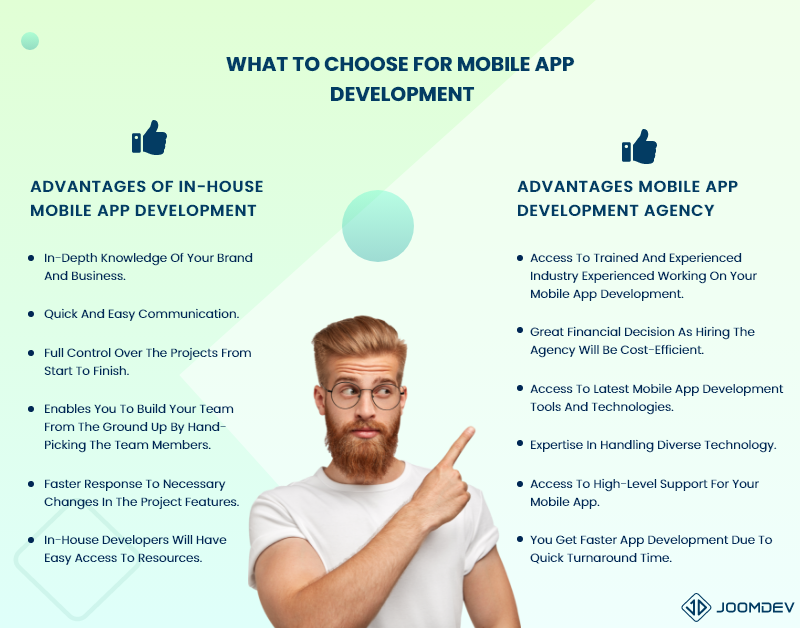
Obviously, choosing one of the two options is not only a difficult task but also depends upon several factors like budget and workloads that come into play when making this decision.
Well, worry not. Here are the key advantages of both options to help you decide whether to employ in-house developers or hire a mobile app development company.
Advantages of In-house mobile app development:
- In-depth knowledge of your brand and business.
- Quick and easy communication.
- Full control over the projects from start to finish.
- Enables you to build your team from the ground up by hand-picking the team members.
- Faster response to necessary changes in the project features.
- In-house developers will have easy access to resources.
Advantages Mobile app development agency:
- Access to trained and experienced industry experienced working on your mobile app development.
- Great financial decision as hiring the agency will be cost-efficient.
- Access to the latest mobile app development tools and technologies.
- Expertise in handling diverse technology.
- Access to high-level support for your mobile app.
- You get faster app development due to the quick turnaround time.
If you ask us about the best option between the two, we will suggest you hire a mobile app development agency for your most important mobile app project. Here are the reasons: 9 reasons why hiring mobile app development services is key in 2022.
Some Pro Tips in Choosing a Mobile App Development Company
So you’re dreaming about building a new mobile app. iOS, Android, Hybrid…whoa, hold that thought. Before you consider which type of mobile app you’ll be presenting to your users, think about who will be developing it. Before entertaining dreams of the perfect mobile app, you need to find the perfect company to develop an app for you.
Choose your mobile app development company carefully! No other decision will have a greater impact on the success or failure of your mobile app. A bad choice can not only lead to a result that is not up to par but also can crush your dreams too.
If you hire a good reputable company in terms of price, reliability, and expertise, the potential for problems will be greatly reduced. Find a company that has a great deal of grit and experience to manage your entire project like a breeze.
How to select the best mobile app development company? You probably have this question rattling around in your brain, if you have chosen the option to hire a mobile app development agency then go for in-house developers.
Don’t fret! We’ve outlined 5 pro tips to help you choose the right company for your app project.
Do Your Research
If all else fails, doing your research is surely going to help you in your search for an app development company for developing your mobile app. Before you even begin your search for the company, you should jot down everything you want in order of priority to establish your goals. Identify why you’re developing a mobile app and what kind of features it would require to meet your expectations.
Do perform some online sleuthing to review each company’s website, marketing content, and social media to know more about companies. Try tracking down the companies and build a list of companies that you’re interested in knowing more about.
To evaluate which company might be a perfect fit for you, determine the core capabilities of each company. Look at the portfolio, work samples, and the experience of each company.
Ask Great Questions
If you decide to meet the company or ring them up, be sure to make a list of questions to ask each potential company during the interviews. Interviewing the mobile app development companies with zero preparation is bound to leave you flustered, so take to jot down the most important things that matter to you.
You may already know a lot about the company based on your research, but you help you brainstorm, here are some questions you might want to ask about:
- What similar projects have you worked on?
- Who will be working on this project?
- What is the realistic timeline for the completion of the project?
- What does your process of mobile app development look like?
- How can we ensure the success of the app?
- How much will this app project cost?
- What services do your fees include? And what is not covered?
- How will my mobile app be submitted to the app store?
Also, the company should in turn ask you questions and inquire about the budget you have in mind then offer advice on the type of mobile app that would work best for your business, end-users, and budget.
Ask for Reviews and References
Take the next step by asking for reviews and references to get insight into what it really looks like to work with the company. This is a great opportunity to get an indication of the company’s overall performance.
The reviews provided by the previous customers can be seen as votes of confidence and might help you make your choice. However, be mindful to take negative reviews with a grain of salt as some of them can be faked.
Check out reviews on third-party review sites to get an idea of the kind of work done by the company for other people. If the company has developed excellent apps for them, it’s likely they can provide an excellent app for you too.
If you want some additional reassurance, don’t be afraid to ask a mobile app development company for some references. If a company has some references whom you can call, you might even be able to get a clear sense of how the company will approach your app project.
This can let you hear directly from past clients and get unbiased reviews about the app development services that the company provides. If your schedule and geography permit, you should definitely try to meet face-to-face with the company before hiring to get a better feel for each company, its team, and its atmosphere.
Total Up the Budget
Having a firm idea of how much you can pay for a new app and when it must be completed is necessary to find the right app development partner. On the financial side, don’t be afraid to ask about the cost implications of the project and what is included in the project estimate.
You want the company that can deliver the best app at the least amount of money. However, focusing solely on price to choose a company can be a risky approach. Instead, you need a company that not only provides you with great value but also within your budget.
Make your expectations very clear to the mobile app development company. You want a reliable company with professional developers who won’t cut the corners in the development process of your app.
Make Your Decision
When finally making a decision on which company is going to help you build your dream app, there are of course tons of factors to consider. But while every company is different, we suggest picking the one that fits best with your budget and with whom you’ll truly enjoy working.
The development process should be a fun way for you to be creative to make your app development dreams a reality, and an app development agency plays a huge role in that. So, once you’ve done the research, shortlisted companies, and compared the options that seem to pass muster, it’s time to start this wonderful mobile app development journey together as a team.
While this might seem like a lot of work, it’ll be worth it to partner with a mobile app development company that offers quality services at affordable prices, with proficient development, testing, launching, and after-launch support. Once you have chosen a mobile app development company, trust them to do their job – they are trained professionals who have proven they can deliver.
Wrapping Up
We are so glad that you have taken the time to review this comprehensive guide on Mobile App Development! We discussed the key elements behind the app development, how to prepare for them, what to look out for, and ultimately how to enjoy the process. By using this guide, you’ll be able to get some insights on things to expect and avoid or prepare for successfully developing your app and creating some real magic for your business.
Want to Hire a Mobile App or Web App Development Company?
Don’t worry, we are here to help you. Let’s book a free consultation call with our expert and let us understand your business and what you want to achieve.
FYI, JoomDev has been offering custom mobile application development services for more than 7 years.
If you found this article helpful or if you have any questions please jot down your views in the comments section below. We have a team of amazingly skilled professionals who are always happy to help you.




